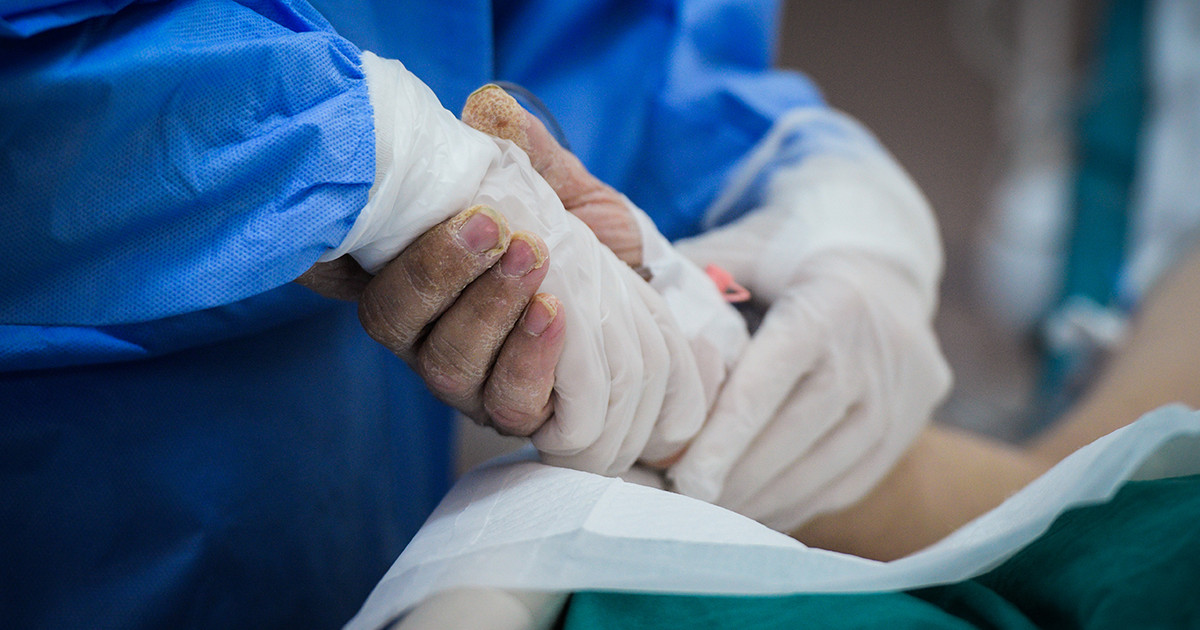Three cases of gonorrhea which in the United Kingdom have led health authorities to sound the alarm in recent months. The sexually transmitted infection, caused by the bacterium Neisseria gonorrhoeae and second most widespread in the world after chlamydia, it has in fact occurred in a very resistant version. The same experts baptized it “supergorrhea“And unfortunately it is yet another confirmation of the increasingly worrying phenomenon ofantibiotic resistance. Cases have been identified in recent months and reported as resistant to ceftriaxonthe leading drug used to treat the bacterium in the UK.
Similar signals have been repeated for at least a decade. In 2016, for example, another case of “super gonorrhea” occurred, caused by a bacterium that is in fact not curable with the antibiotics usually used for therapies of this type. But as early as 2000, new drug-resistant strains have been registered in Japan.
The risk, very high, is that in general some infections can no longer be treated, if not on the condition of designing and producing increasingly powerful and specific antibiotics. A practice that is not necessarily always possible and is always harmless to health, as well as being quickly implemented. On the other hand, antibiotic-resistant infections they kill about 1.5 million people worldwide every year. These are pathologies that we once treated and that, basically due to misuse and misprescribing of antibiotics, today we can no longer fight as bacteria have become accustomed to the molecules that in the past were sufficient to neutralize them. Gonorrhea, as seen, is a particularly dynamic bacterium from this point of view.
Gonorrhea, if left untreated, it can be very serious. Not only can it facilitate the transmission of other sexual diseases and obviously lead to chronic pain and inflammation of the genitals but it can also trigger pelvic inflammatory diseases for womenlead to early miscarriagesincrease the odds of ectopic pregnancies And infertility in men and women. The use of the condomwhich unfortunately as reported by a recent Durex observatory dedicated to the habits of young people only 46.3% use it habitually, remains the key to protecting yourself. In fact, gonorrhea is transmitted through any kind of sexual intercourse and through the maternal-fetal way at birth. The problem is precisely that if the gonococcus is treated badly or not in the immediacy of the infection it can become resistant to different classes of antibiotics: penicillins, tetracyclines, macrolides and fluoroquinolones. Obviously, sexual intercourse cannot be had during treatment.
“It is the consequence of an abuse of incongruous antibiotic treatments over the years, of poor treatment by people, of do-it-yourself, of the use of Doctor Google instead of turning to specialists – he explains Alessandra LatiniHead of the Sexually Transmitted Diseases Unit of the Hospital Physiotherapy Institutes (Ifo) – San Gallicano Institute (Isg) of Rome, at Corriere della Sera who dedicated an in-depth analysis to the three cases – and the Covid pandemic made things worse: many infectious disease wards have suspended or curtailed activities for months, so many cases of sexually transmitted infections were not diagnosed correctly and, as a result, more people were forced to self-medicate. A situation that can fuel the emergence of both resistance to treatment and super gonorrhea ».
How to recognize infection with Neisseria gonorrhoeae? In women, attention should be paid to heartburn, difficulty urinating, yellow-widish secretions and pain before and after intercourse, as well as generalized vaginal itching. In men a abundant secretions always of a yellow-greenish color, heartburn and still difficulty urinating. If contracted through oral intercourse it can trigger pharyngitis in both sexes. To be sure, then urethral swabs are needed for men or vaginal or cervical swabs for women, but there are also oral and rectal tests. The material is then subjected to amplification of the nucleic acids while the antibiogram will give knowledge of the sensitivity and resistance of the bacterium to antibiotics.
“It’s too early to tell if this will be the beginning of a long-term trendbut we know that sexually transmitted diseases are on the rise in general, “explained the doctor months ago Katy Sinka, Head of the Sexually Transmitted Diseases Section at the UK Health Safety Agency. Contracting one of these conditions “is not as simple as taking medicine and moving on with your life: if not properly treated, they can have a long-term impact on your health and that of your partner.” Furthermore, “the antibiotic resistance in the mix makes the impact even greater.”
Sexually transmitted diseases, one million infections a day
Sexually transmitted infections, what and what they are
Source: Vanity Fair






